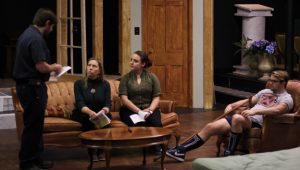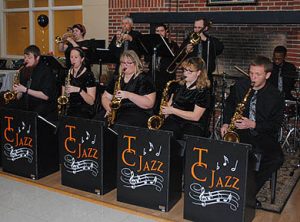By Joe Romano, ‘63
Dr. Brooks was the best history professor I’ve ever had, and I have a Master of Arts in history from the University of Tennessee and have taken courses at Rutgers University. At the time she seemed so old, though she was younger then than we are now.
Dr. Brooks was unmarried and the perfect Puritan. She considered her abilities a gift from God, that they weren’t really hers and that it was up to her to practice stewardship with whatever talents she had been given. She didn’t drink or smoke and exercised regularly.
Periodically we would see her motoring by Rankin Hall at a fast clip wearing the high top sneakers the athletic department had ordered for her.
Dr. Brooks was one of the first women to graduate, about 1918, from the University of Chicago with a Ph.D. in history. Her dissertation was how Britain and France colonized the islands of the South Pacific, or as she put, “How they stole half of Asia.”
Each year she taught four or five sections of freshman Western European Civilization as well as two or three upper class courses. Over a three-year period she alternately offered every course she thought necessary for a history major’s education. But a history major had to pay attention, or he or she would lose out, since the class wouldn’t be offered again out of cycle.
There was quite a bit of test stealing in those days, but no one ever stole a Dr. Brooks test or exam. She had a small safe in her apartment in what is now called the Old College, and she locked away every copy of the test questions plus the blue books in which the students had written their answers.












